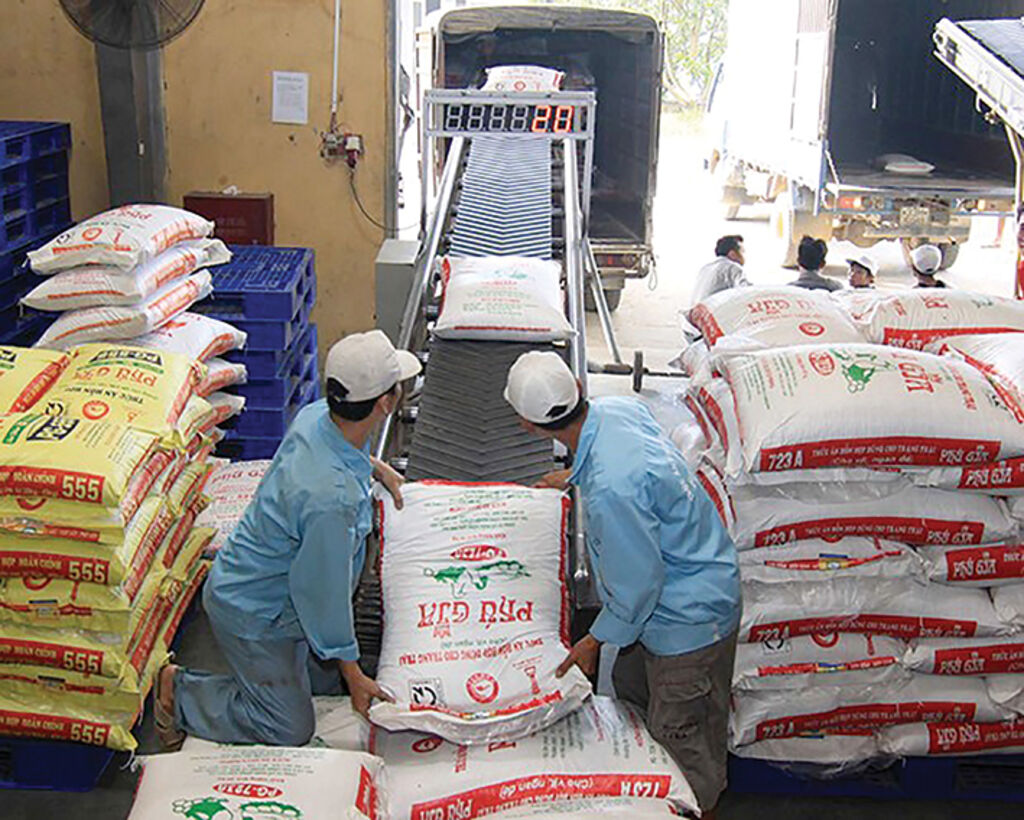 |
| An animal feed production line in Thanh Hoa province__Photo: VNA |
By 2030, Vietnam will be able to meet 30-35 percent of the demand for domestic animal feed for which the country has such advantages as microbial products, enzymes, herbs, natural compounds, macro-minerals, trace minerals and natural minerals.
Such is one of the targets set under Prime Minister Decision 1625/QD-TTg, approving the Scheme on development of the animal feed processing industry through 2030.
Accordingly, the Scheme is designed to utilize the country’s existing potential for further increasing the domestic animal feed production and processing capacity in order to ensure food quality and safety, lower product prices and reduce the proportion of imported animal feed ingredients.
In light of this, it is targeted to focus on intensifying the application of high and advanced technologies in processing agricultural, industrial and food processing by-products for production of animal feed in the industrialized manner so as to improve their use value and economic efficiency.
By 2025 and 2030, the industrial animal feed output is expected to reach 24-25 million tons and 30-32 million tons, respectively, meeting at least 70 percent of the total demand for quality animal feed.
To realize those goals, technological chains for producing industrial animal feed will be developed or renovated in localities planned for animal husbandry development, with greater attention paid to areas having large livestock farming spaces while limiting the opening and expansion of industrial animal feed production establishments in areas with high density of animal feed production establishments.
Other tasks are to develop the production of food supplements and processing of agricultural and industrial by-products for use as animal feed, and to convert a certain portion of agricultural land areas into those for animal feed material production in order to meet domestic demand and reduce imports.-









